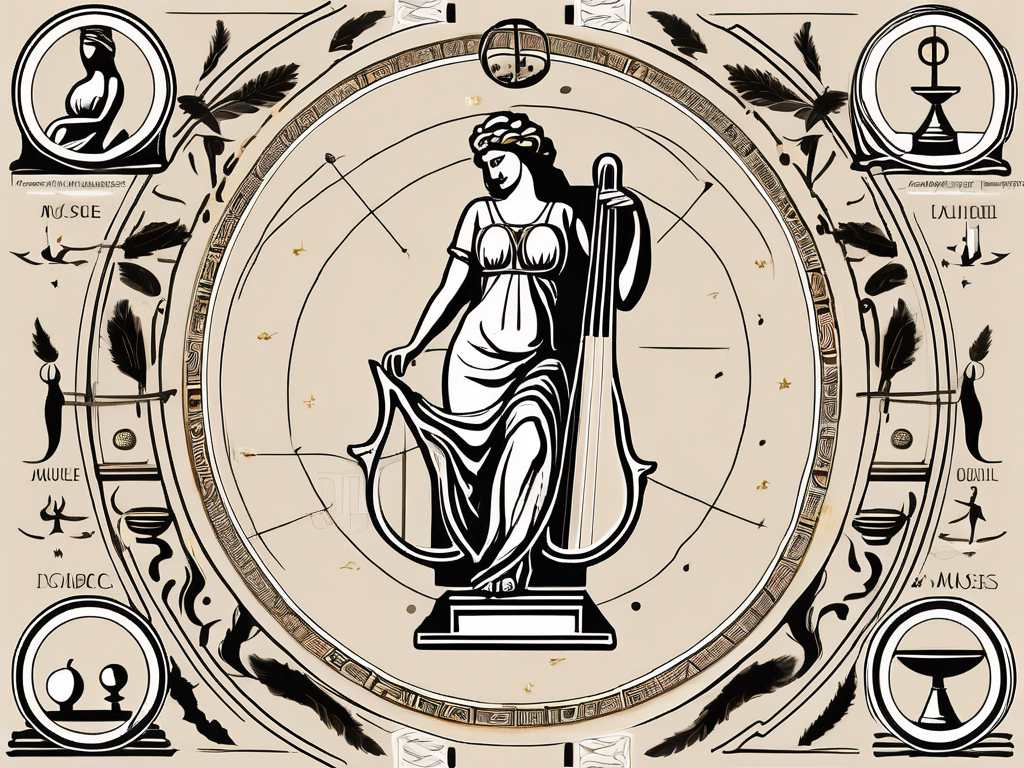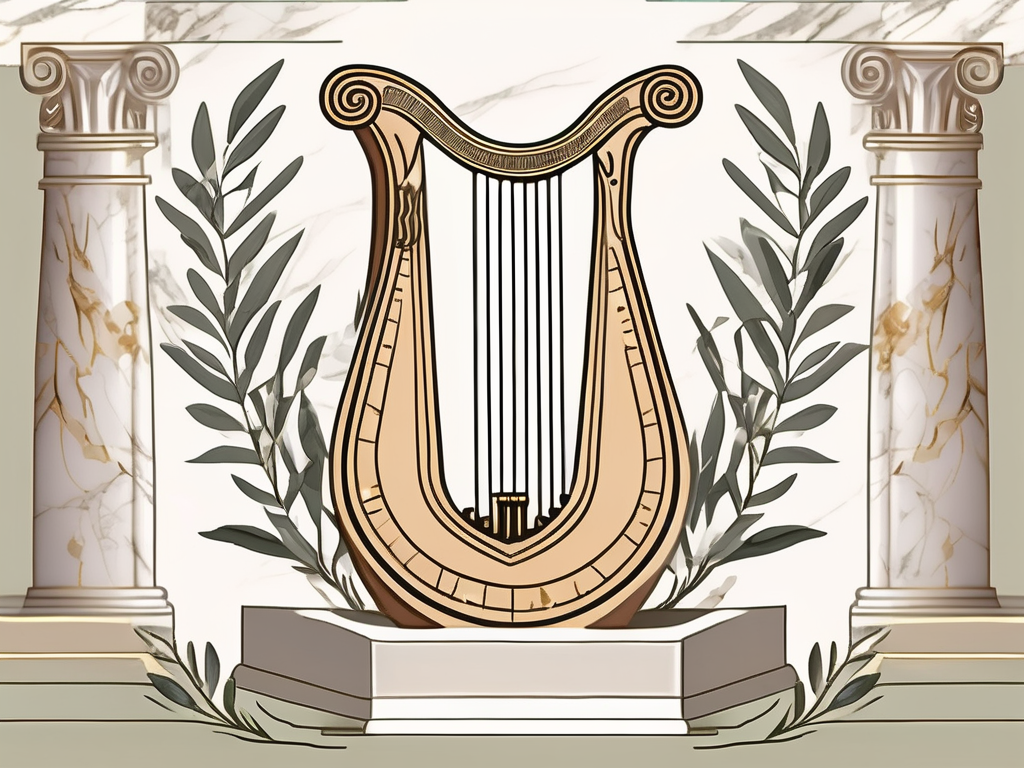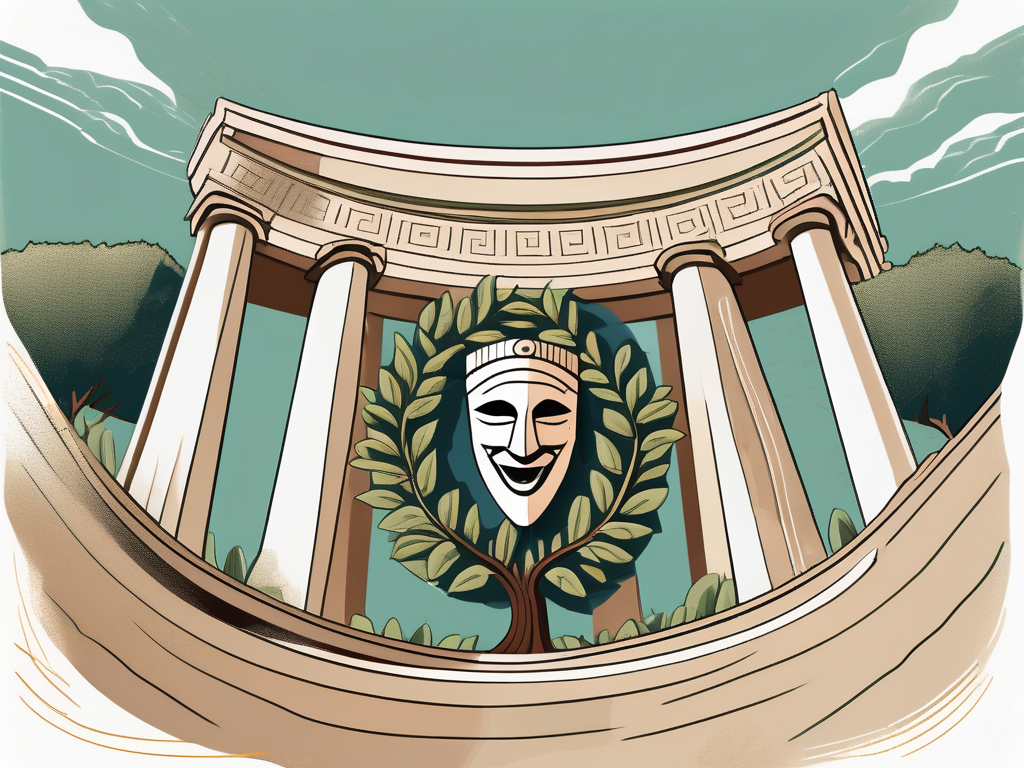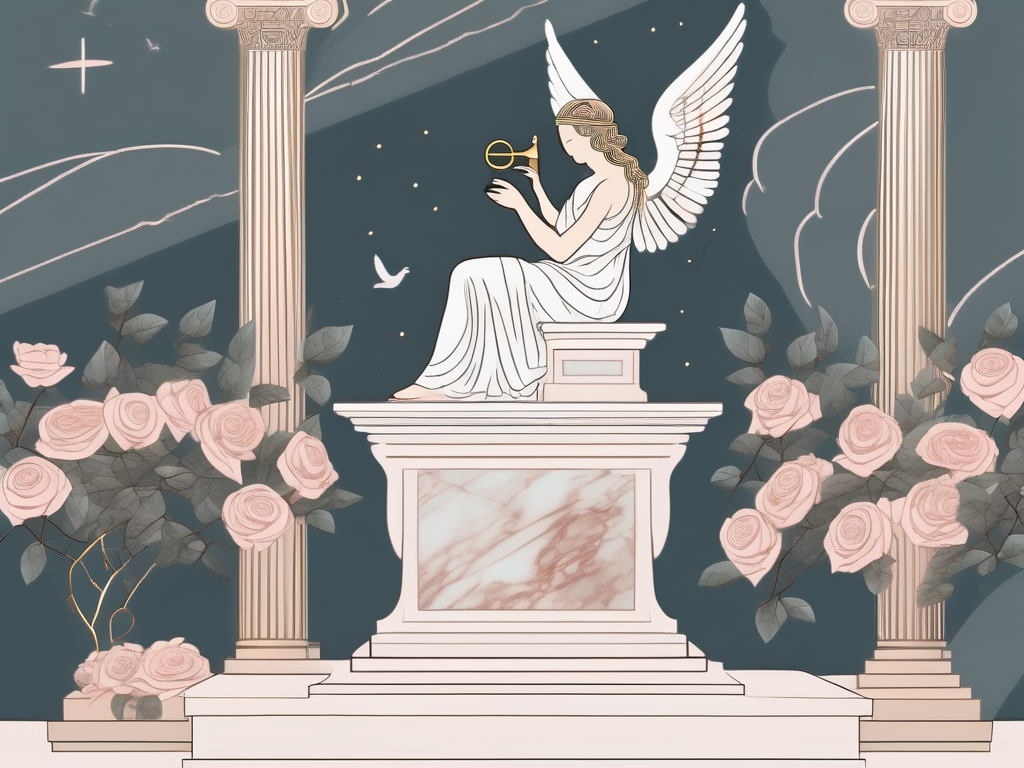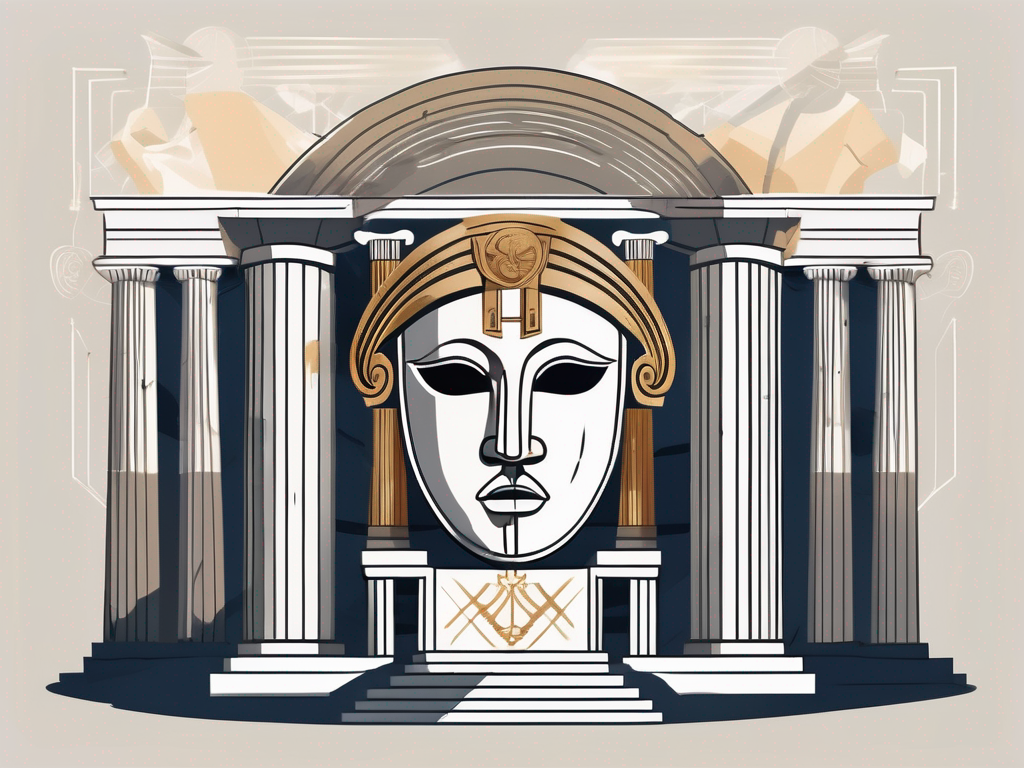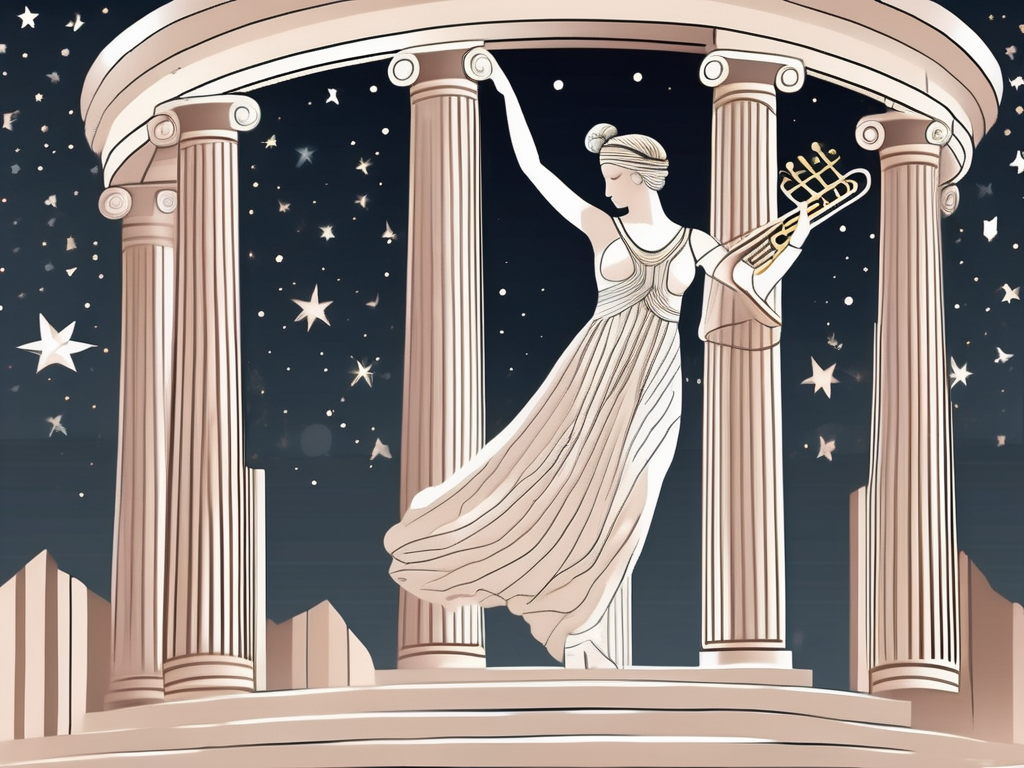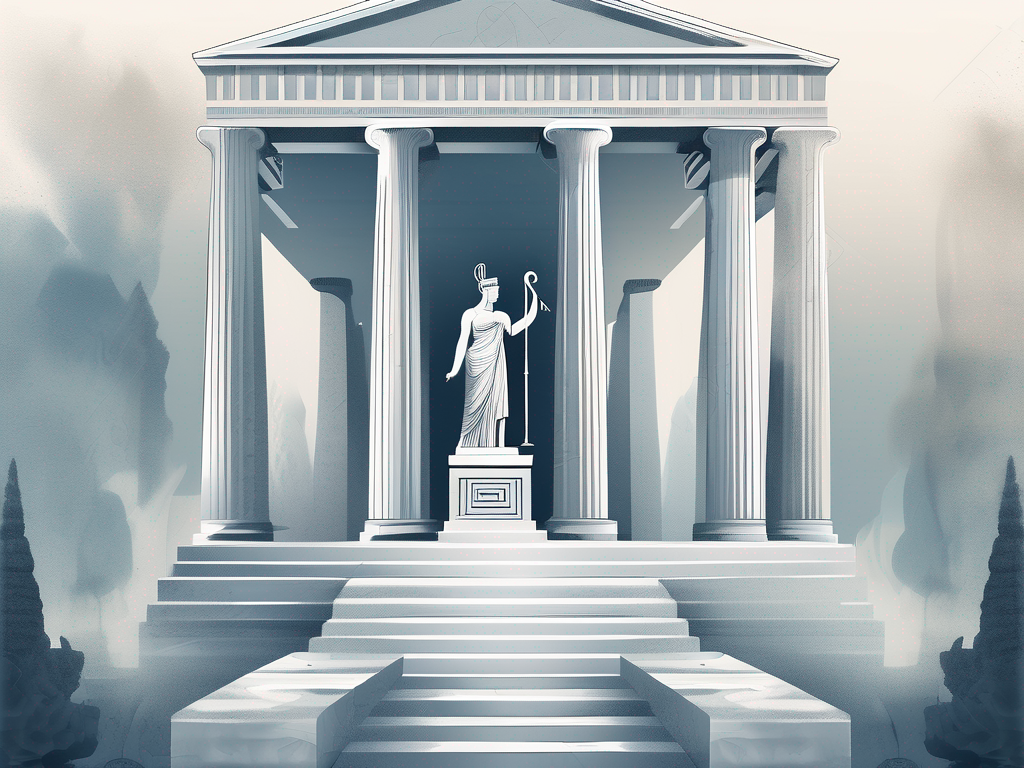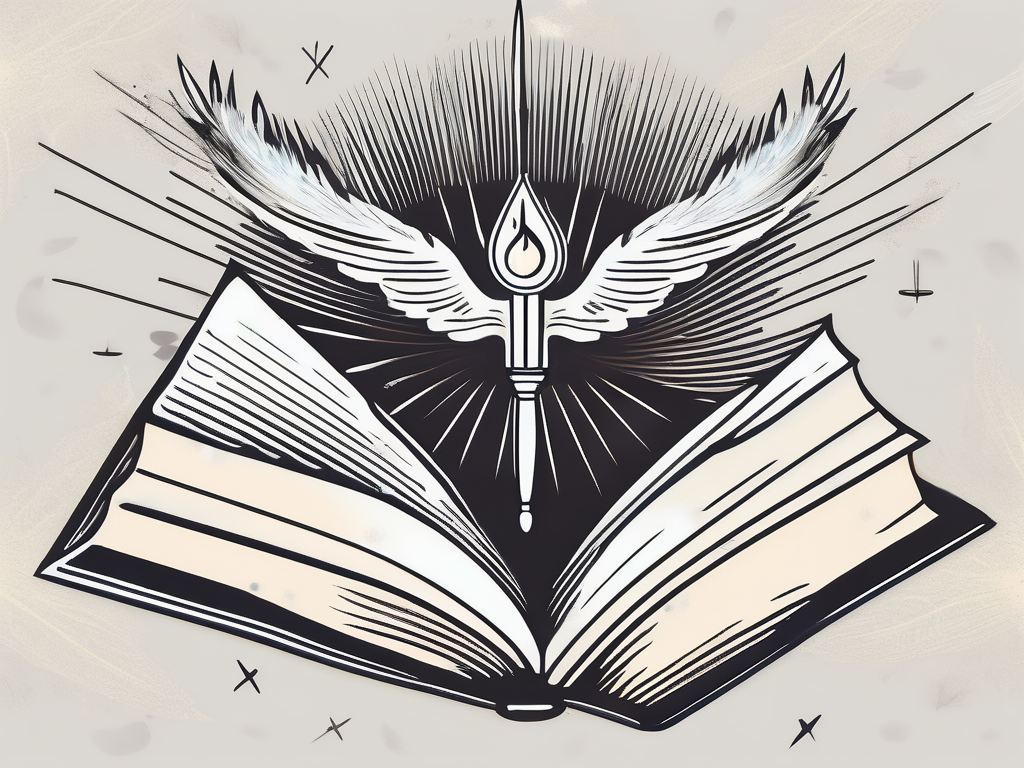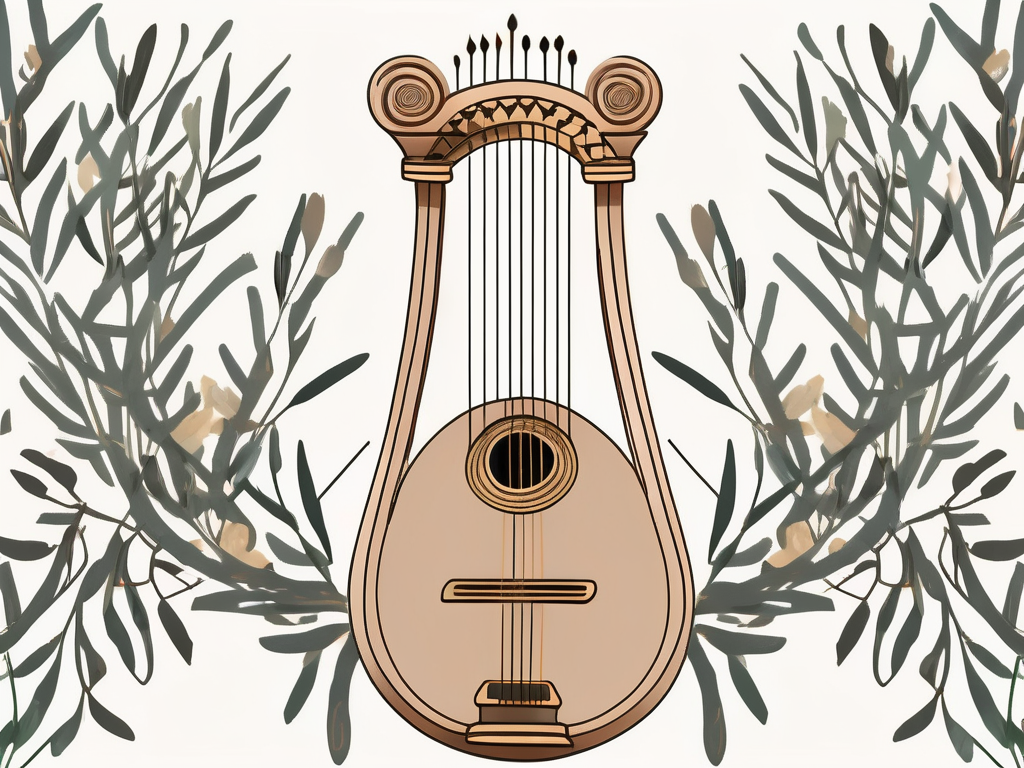Greek mythology is full of fascinating deities, each with their own unique stories and significance. One such goddess is Calliope, who holds a special place as the muse of epic poetry. Join me as we dive into the depths of Greek mythology to better understand the role of Calliope and her many contributions.
Understanding the Role of Calliope in Greek Mythology
In ancient Greece, the Muses were a group of goddesses who inspired creativity in various artistic endeavors. Calliope, the eldest among them, was the muse of epic poetry. She was the epitome of eloquence, her very name meaning “beautiful voice.”
Calliope’s role was to inspire poets and writers, guiding them to create large-scale literary works that captivated and moved audiences. She was the driving force behind the creation of epics such as Homer’s “Iliad” and “Odyssey,” serving as a beacon of inspiration for storytellers throughout history.
But what made Calliope so influential in the realm of epic poetry? It was her unparalleled understanding of language and her ability to inspire narratives of grandeur and heroism. Poets would invoke her name, seeking her wisdom and guidance when embarking on the creation of their epic works. They believed that by channeling Calliope’s divine essence, their words would become more than just stories; they would become timeless masterpieces.
Calliope’s influence extended beyond mere inspiration and guidance. She was also a protector of poets, watching over them and ensuring their works reached their full potential. With her divine intervention, she elevated the art of storytelling to new heights, weaving together words that ignited the imagination of listeners. It was through her that mortals could experience the awe-inspiring tales of heroes and gods, transported to distant lands and epic battles.
Calliope’s Position as the Muse of Epic Poetry
As the muse of epic poetry, Calliope held a privileged place in the pantheon of Greek gods. She stood alongside other deities, revered for their own unique domains. But Calliope’s role was distinct, for she possessed the power to shape the very fabric of human expression.
Her influence went beyond the realm of mortal poets; it extended to the gods themselves. Calliope’s unmatched understanding of language and her ability to inspire narratives captivated even the most powerful deities. Apollo, the god of music and arts, recognized her as his equal, acknowledging her as the muse who could inspire even the divine. Zeus, the king of the Olympian gods, held her in high regard, for her words had the power to move even his immortal heart.
Calliope’s relationship with the other muses was one of harmony and collaboration. Each muse represented a different form of art or creative discipline, and together, they formed a symphony of inspiration. Calliope’s role as the muse of epic poetry complemented the others, as her words provided the foundation upon which other muses could build their own artistic endeavors.
But it was Calliope’s connection to the mortal world that truly set her apart. Poets and writers sought her favor, knowing that with her guidance, their words would transcend the limitations of mortal existence. Through her, they could capture the essence of heroism, the beauty of love, and the depths of human emotion.
Calliope’s Legacy and Influence
Calliope’s legacy as the muse of epic poetry lives on to this day. Her influence can be seen in the works of countless poets and writers, who continue to draw inspiration from her divine essence. From ancient epics to modern novels, her presence can be felt in the words that transport readers to distant worlds and ignite their imaginations.
But Calliope’s influence is not limited to the realm of literature. Her spirit of eloquence and inspiration can be found in all forms of creative expression, from music to painting to theater. Artists of all disciplines invoke her name, seeking her guidance as they strive to create works that touch the hearts and minds of their audiences.
So the next time you find yourself captivated by a grand tale or moved by a powerful piece of art, remember Calliope, the muse of epic poetry. It is through her that the voices of the past continue to echo in the present, and it is through her that the power of storytelling endures.
The Symbolism Attached to Calliope
Within Greek mythology, symbols held great significance, often conveying deeper meanings and messages. Calliope, too, was associated with powerful symbols that added depth to her role and influence.
The Power of Calliope’s Writing Tablet
One of the most notable symbols associated with Calliope is her writing tablet. This tablet was believed to hold the secrets of inspiration and served as a conduit between mortal poets and the divine realm. Writers would seek her guidance by touching the tablet, hoping to channel her eloquence and creativity into their works.
Through her tablet, Calliope bestowed upon mortals the ability to capture the essence of their stories, immortalizing them in words. She empowered writers to express their thoughts, emotions, and ideas with clarity and grace, forever leaving their mark on the world of literature.
The Significance of Calliope’s Lyre
Another symbol associated with Calliope is her lyre, an instrument often depicted in her presence. The lyre, the principal instrument of the ancient Greeks, represented melody, harmony, and rhythm. As the muse of epic poetry, Calliope utilized the lyre’s power to infuse her words with the magic of music.
Through the lyre’s ethereal melodies, Calliope exuded a captivating aura, drawing listeners into the realms of her stories. The harmonious combination of words and music created a profound emotional impact, allowing listeners to be transported to the epic tales she inspired.
Calliope’s Influence on Ancient Greek Culture
As the muse of epic poetry, Calliope’s influence reached far beyond the realm of creativity. She played a significant role in shaping the culture and beliefs of ancient Greece.
Calliope’s Impact on Greek Literature
Greek literature, particularly epic poetry, owes an immeasurable debt to Calliope’s inspiration. The works inspired by her have become cornerstones of Western literature, influencing countless authors and poets throughout the ages.
Through her patronage, Calliope elevated the status of poets, emphasizing the importance of storytelling and the preservation of cultural heritage. Her influence resonates even today, as we continue to study and appreciate the epic poems that bear her divine touch.
Calliope’s Role in Greek Religious Practices
Greek religion was intricately intertwined with daily life, and Calliope played a role in the religious practices of ancient Greece. She was revered as a source of inspiration and creativity, often invoked during ceremonies and artistic performances.
Prayers and offerings were made to Calliope, seeking her favor and guidance in matters of poetic endeavor. Temples dedicated to her were erected, serving as gathering places for poets and artists alike. The worship of Calliope became an integral part of Greek culture, highlighting the significance of artistic expression in the lives of its people.
Calliope’s Legacy in Modern Times
While ancient Greece may feel distant, the legacy of Calliope continues to reverberate through our modern world. Her influences can be found in various artistic disciplines and the collective imagination of contemporary society.
Calliope’s Presence in Contemporary Art and Literature
Calliope’s enduring presence can be witnessed in the works of numerous artists, writers, and musicians. Her influence continues to inspire creativity, as modern storytellers weave narratives that echo the grandeur of the epics she inspired.
Artistic movements, too, find themselves drawing inspiration from Calliope’s essence. Her touch can be felt in the brushstrokes of a master painter, the melodies of a moving musical composition, and the words of a thought-provoking novel. Calliope’s legacy lingers in the works that captivate our hearts and minds.
The Modern Interpretation of Calliope’s Symbolism
As time passes, the interpretation of Calliope’s symbolism has evolved. While her writing tablet and lyre remain potent symbols, their meanings have become more metaphorical.
Calliope’s tablet now represents the power of words and their ability to transcend time and touch the souls of others. It reminds us of the importance of storytelling as a means of connecting, inspiring, and preserving our collective human experience.
Similarly, her lyre is now a metaphor for finding harmony in life and in our creative endeavors. It encourages us to embrace the rhythm of our passions and use them as a guiding force in our own epic journeys.
Debunking Misconceptions about Calliope
Throughout the years, misconceptions have arisen regarding the role and nature of Calliope. It is essential to dispel these misconceptions and gain a more accurate understanding of this goddess and her contributions.
Common Misunderstandings about Calliope’s Role
One common misconception is that Calliope solely inspired bards and epic poets. While it is true that her primary role was as the muse of epic poetry, her influence extended beyond those boundaries. She inspired various forms of literature, from tragic plays to historical accounts, leaving an indelible mark on the literary world.
Clarifying Calliope’s Relationship with Mortals
Another misconception is that Calliope solely interacted with gods and other divine beings. In reality, she was deeply connected to mortal poets and writers, bestowing her inspiration upon them in their creative pursuits. Mortals could, and often did, invoke Calliope’s name and seek her guidance in their artistic endeavors.
Calliope, the muse of epic poetry, remains a captivating figure in Greek mythology. Her influence spans the realms of creativity, culture, and spirituality. As we unveil the layers of her mythical existence, we gain a deeper appreciation for the power of storytelling and the enduring legacy of this enchanting goddess.

